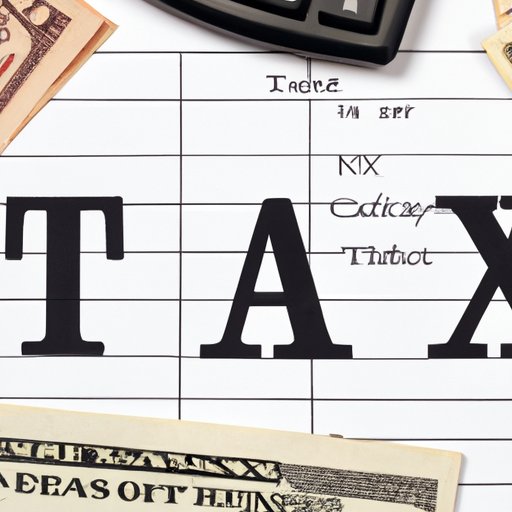
I. Introduction: Tax Filing Basics
Many people face the common dilemma of whether or not they need to file taxes. Understanding tax filing basics is the first step to tackle this problem. Taxes can be complicated, but not filing when you’re required to can lead to hefty penalties. This article aims to guide you through the process and clarify any doubts you may have.
II. Understanding Tax Filing Basics: Who Needs to File and Who is Exempt
The IRS requires all US citizens or residents to report their worldwide income on a tax return. However, not everyone needs to file taxes and there are some exemptions. The criteria for having to file taxes includes factors such as age, income, and filing status.
The income thresholds are different depending on your filing status. For example, if you are single, under 65, and earned more than $12,200 in 2019, you are required to file taxes. But if you are a dependent, you may still have to file a return if your income exceeds $1,100.
III. What is the Minimum Income to File Taxes in the US?
The minimum income varies according to the type of tax return and your filing status. For example, in 2019, if you were married filing jointly and both spouses are under 65, you must file a tax return if your combined income was at least $24,400. Nevertheless, it is important to determine your taxable income first before you come to know if you have to file taxes or not.
To calculate your taxable income, add up all sources of income and subtract any deductions you may be eligible for. Deductions include but are not limited to student loan interest, charitable contributions, and retirement account contributions.
If you fall under the income thresholds for your filing status, you may still be required to file a tax return if you received any advance premium tax credits or if you owe alternative minimum tax (AMT).
IV. Tips for Filing Taxes If Your Income Is Below the Minimum Threshold
Even if you do not meet the minimum income requirement, you may still choose to file taxes. This could be beneficial when you’re looking to claim tax credits like the Earned Income Tax Credit (EITC) or the Child Tax Credit (CTC). These credits may generate a refund even if you do not owe any taxes.
File for a tax return by collecting all necessary forms and paperwork needed. You can do this yourself or seek the help of a professional tax preparer. Additionally, several free tax preparation programs are available online. If you do not have internet access, you may visit an IRS Taxpayer Assistance Center and ask for help.
V. How to Determine Your Tax Filing Status and Avoid Penalties
Knowing your filing status is essential to avoid making mistakes on your tax return. The IRS provides five categories, namely single, married filing jointly, married filing separately, head of household, and qualifying widow(er) with dependent child. Your filing status depends on the marital status, household member’s status, and other factors.
Not filing your taxes when you’re required to can lead to penalties. If you fail to file your taxes after due date, you may owe a penalty of up to 5% for each month or part of a month that you’re late. But if your tax return is over 60 days late, the penalty is even steeper, either $435 or 100% of the taxes you owe, whichever is less.
VI. Tax Benefits You Could Be Missing Out on if You Don’t File Taxes Even With Low Income
You may be eligible for several tax benefits that could improve your financial situation, like the low-income housing tax credit or the retirement savings contributions credit. But you can only claim these benefits if you file a tax return.
If you don’t expect a refund, you have up to three years from the due date of the tax return to file and still get your refund. But if you wait longer, the time limit goes away, and you lose your refund.
VII. Conclusion
Remember that taxes don’t have to be overwhelming! With this guide, you can now determine whether or not you are required to file taxes. Even if you fall under the minimum income requirement, filing for taxes can earn you tax credits that can be beneficial in the long run. If you’re struggling with filing your taxes, look for professional help and avoid costly penalties.





